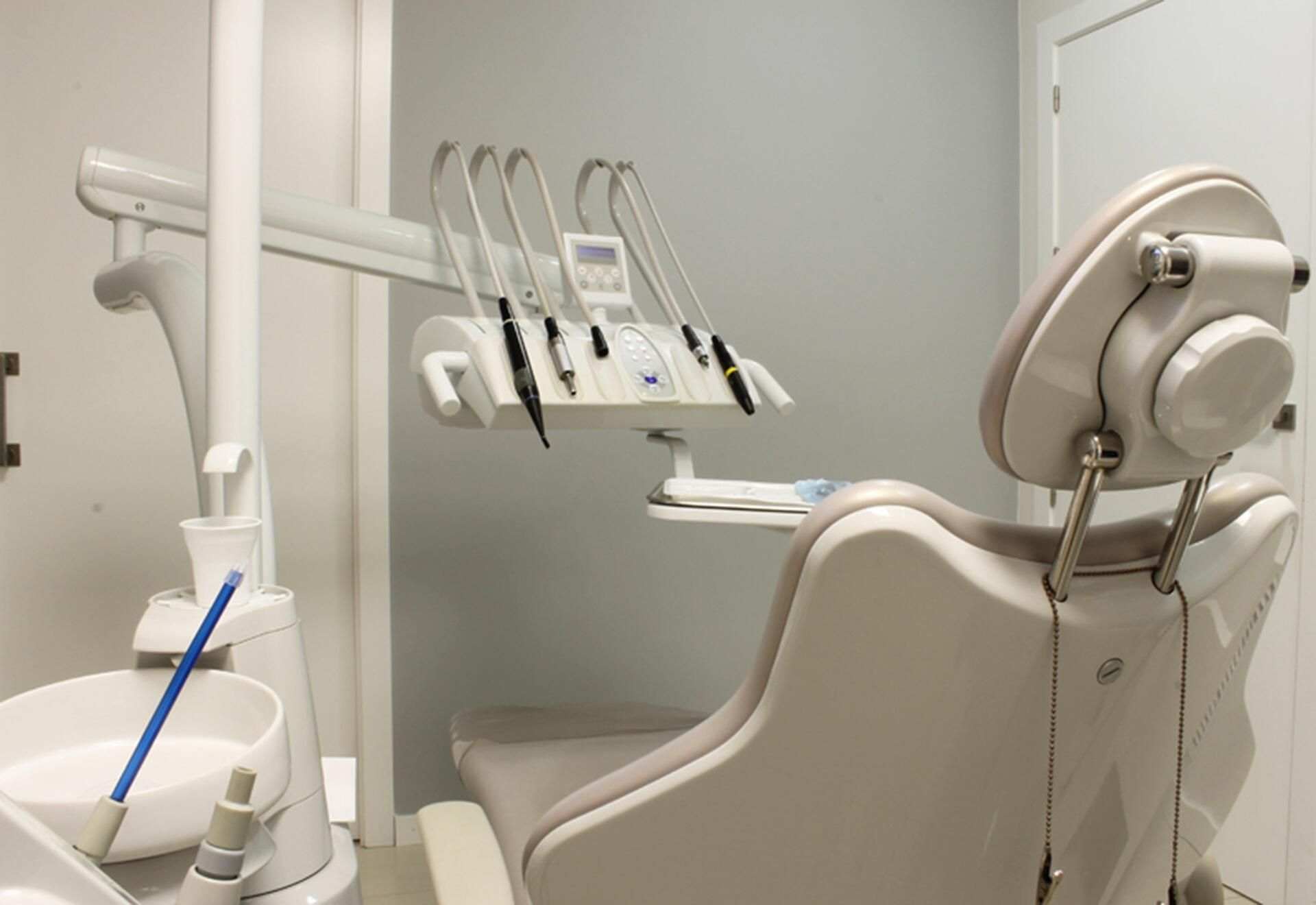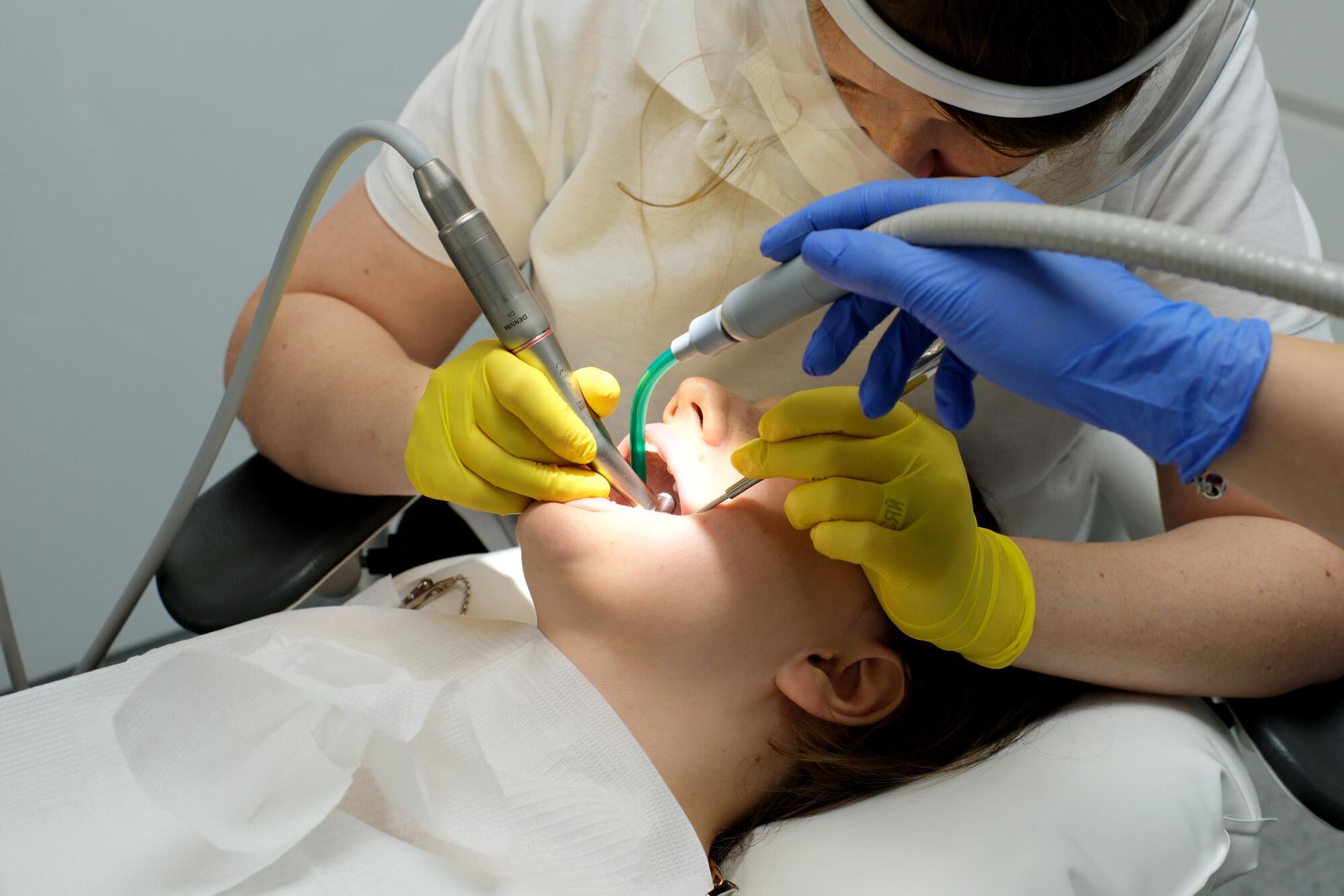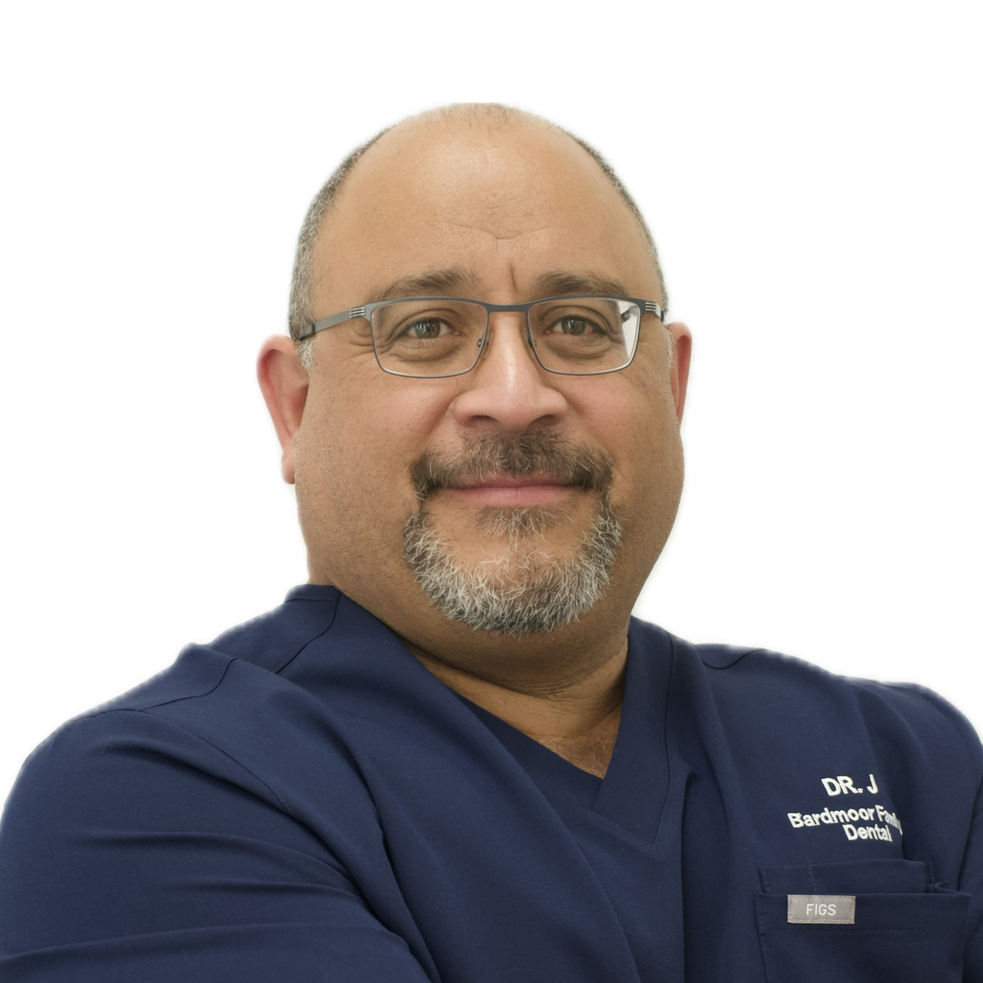The Role of Sedation in Oral Surgery
The Role of Sedation in Oral Surgery
Undergoing oral surgery can be a daunting experience, especially for those with dental anxiety or complex procedures ahead. At Bardmoor Family Dental in Largo, FL, we understand these concerns and are committed to providing a comfortable and stress-free environment for our patients.
Led by Dr. Jamil Abdelghani, affectionately known as Dr. J, our team offers a range of sedation options tailored to individual needs. With over 20 years of dental experience and a reputation for compassionate care, Dr. J ensures that every patient receives the highest standard of treatment. Our state-of-the-art facility in Largo, FL, is designed to make each visit comfortable and calming. Whether you are undergoing a tooth extraction, bone graft, or a full mouth reconstruction, we ensure you feel relaxed and confident throughout your treatment.
Understanding Sedation Dentistry
Sedation dentistry is a technique that utilizes medication to help patients relax during dental procedures. While local anesthesia numbs the surgical area, sedation dentistry focuses on enhancing the patient's overall sense of comfort and relaxation. For those undergoing oral surgery, such as tooth extractions, dental implants, or full-mouth reconstruction, sedation can transform a potentially stressful experience into one that feels manageable and comfortable.
At Bardmoor Family Dental, we offer several sedation options tailored to your specific needs:
- Nitrous Oxide (Laughing Gas): A mild sedative inhaled through a mask, providing relaxation without drowsiness.
- Oral Sedation: Medications taken before the appointment to help patients feel calm and relaxed.
- Intravenous (IV) Sedation: Administered through a vein, offering more profound sedation for more complex procedures.
Each sedation method is carefully chosen based on the type of procedure, the patient's health, and comfort levels.
Types of Sedation Used in Oral Surgery
1. Nitrous Oxide (Laughing Gas)
Nitrous oxide is a mild sedative that induces a state of relaxation and euphoria. This colorless, odorless gas is administered through a small mask placed over the nose and mouth. The patient inhales the gas during the procedure, allowing them to feel relaxed and at ease.
Benefits:
- Quick onset and recovery: Nitrous oxide takes effect almost immediately, and its effects wear off quickly after the mask is removed.
- Minimal side effects: Most patients tolerate nitrous oxide well with little to no side effects.
- No need for assistance post-procedure: Unlike other sedatives, nitrous oxide does not leave lingering effects, meaning patients can drive themselves home after their appointment.
Ideal for: Patients undergoing minor procedures or those with mild anxiety about dental treatment.
2. Oral Sedation
Oral sedation involves taking a prescribed medication before the procedure to help patients feel calm and relaxed. The level of sedation can range from mild to moderate, depending on the type of medication and its dosage. Patients typically take the medication an hour before their appointment, ensuring they are in a deeply relaxed state when they arrive.
Benefits:
- Effective for moderate anxiety: Oral sedation is ideal for patients with moderate dental anxiety who want to feel more relaxed during their treatment.
- No needles involved: Unlike IV sedation, oral sedation is non-invasive and does not require an injection.
- More profound relaxation: While nitrous oxide offers light relaxation, oral sedation provides a more profound sense of calm, which is beneficial for procedures that require more extensive treatment.
Ideal for patients undergoing moderate procedures, such as tooth extractions, dental implants, or minor oral surgeries.
3. Intravenous (IV) Sedation
IV sedation is administered directly into the bloodstream through an intravenous line. This method offers more profound sedation, allowing patients to enter a state of conscious sedation where they remain relaxed but still responsive to commands. IV sedation is often referred to as “twilight sedation” because patients may experience partial amnesia and may not remember the procedure afterward.
Benefits:
- Quick adjustment of sedation levels: With IV sedation, the sedation depth can be adjusted quickly, allowing the dentist to respond to the patient’s needs during the procedure.
- Suitable for lengthy or complex procedures, IV sedation is ideal for procedures that require a longer duration in the chair, such as full-mouth reconstruction, multiple extractions, or dental implants.
- Amnesia effect: One of the key advantages of IV sedation is that many patients do not remember the procedure, which helps reduce anxiety about future visits.
Ideal for patients undergoing extensive or complex oral surgery, including full-mouth reconstruction, multiple extractions, or extensive dental implant placements.
What to Expect During Sedation
Before your oral surgery, Dr. J will meet with you to discuss your sedation options and determine which one is best for you, taking into account your medical history, comfort level, and the complexity of the surgery.
During the Procedure:
- Monitoring: Throughout the surgery, your vital signs will be closely monitored to ensure your safety and well-being. This includes heart rate, oxygen levels, and blood pressure.
- Comfort: The surgical area will be numbed with local anesthesia to prevent pain. If you are using sedation, the goal is to keep you relaxed and comfortable throughout the experience.
- Assistance: Throughout the procedure, a trained team member will be by your side to ensure your comfort and make adjustments as necessary.
After the Procedure:
- Recovery: Depending on the type of sedation used, you may need to remain in the office for a brief period to fully recover before going home.
- Post-Operative Care: Dr. J will provide you with detailed instructions on how to care for your surgical site and manage any discomfort that may occur after the procedure.
- Transportation: For those using oral or IV sedation, it is advisable to have a responsible adult drive you to and from your appointment, as you may feel groggy or disoriented after the procedure.
Types of Procedures That May Require Sedation
Sedation dentistry is an excellent option for various dental procedures, especially those that may cause anxiety, discomfort, or require extended time in the dental chair. Below are the types of dental procedures that often require sedation to ensure a comfortable and smooth experience:
1. Tooth Extractions
Tooth extractions, whether due to decay, infection, or overcrowding, are standard dental procedures that may require sedation. While a simple extraction may only involve local anesthesia, more complicated extractions, such as impacted wisdom teeth or multiple extractions at once, may warrant sedation. Sedation helps ease anxiety, ensures the patient remains calm, and manages any discomfort during the procedure.
2. Dental Implants
Dental implant procedures are more involved than traditional restorative treatments. The process involves placing a titanium post into the jawbone, followed by the placement of a crown. Due to the surgical nature of the procedure, sedation is often recommended to keep the patient relaxed and comfortable. Sedation allows the dentist to work efficiently and reduces any discomfort or anxiety associated with the process.
3. Root Canals
Root canal therapy is often necessary when the pulp of the tooth becomes infected or damaged. While local anesthesia is used to numb the area, some patients experience anxiety, especially if the infection is severe or the procedure is lengthy. Sedation can help patients feel at ease and ensure the procedure is completed without discomfort.
4. Full Mouth Reconstruction
Full mouth reconstruction involves a combination of treatments that may include tooth extractions, dental implants, crowns, bridges, or veneers. Given the extent of the work required, sedation is crucial to make the procedure more comfortable and less stressful. Sedation helps manage anxiety and ensures multiple methods can be done in one appointment, reducing the need for several visits.
5. Gum Surgery (Periodontal Surgery)
If you have advanced gum disease that cannot be treated with non-invasive methods, gum surgery may be required. This procedure involves removing infected tissue and may necessitate sedation to ensure the patient is comfortable and calm. Sedation helps alleviate discomfort from both the surgery itself and any anxiety related to the procedure.
6. Bone Grafting
Bone grafting may be needed when there is insufficient bone mass to support dental implants. This procedure can be invasive and often requires sedation to ensure the patient is comfortable. Additionally, because bone grafting requires a more extended healing period, sedation helps the patient relax and reduces any anxiety they may have regarding recovery.
7. Sinus Lifts
A sinus lift is a procedure where bone is added to the upper jaw to create space for dental implants. This is typically done in patients who have insufficient bone height in the upper jaw. Because this procedure involves working near the sinus cavity, sedation is often used to ensure patient comfort and minimize any discomfort or anxiety during the procedure. The surgery can be lengthy, and sedation helps the patient remain calm and relaxed during the procedure.
8. Implant-Supported Dentures
Implant-supported dentures are an advanced solution for patients with missing teeth. This procedure involves placing dental implants into the jawbone to support a complete set of dentures. Sedation is often recommended to ensure the patient remains relaxed during this multi-step procedure, which may take several hours to complete. Sedation helps manage discomfort and reduces any anxiety associated with the procedure, making it a much more comfortable experience.
9. Cosmetic Dentistry Procedures
Cosmetic treatments, such as dental veneers, bonding, or smile makeovers, can sometimes require sedation, especially if the procedure involves multiple steps or extended chair time. For patients who experience dental anxiety, sedation can help ensure they stay relaxed and comfortable throughout the cosmetic treatment, resulting in a more positive experience and achieving the desired results.
10. Orthodontic Procedures
While some orthodontic treatments, such as routine adjustments, can be done with just local anesthesia, more complex procedures—such as placing braces or installing temporary anchorage devices (TADs)—may require sedation. This helps ensure that patients, particularly those with severe anxiety or younger patients, experience less discomfort during these orthodontic treatments.
11. Wisdom Teeth Removal
Wisdom teeth extraction is a standard procedure, but it often involves the surgical removal of impacted teeth. Depending on the complexity of the extraction, sedation is frequently used to keep the patient comfortable and relaxed. This is especially important for patients with dental anxiety or those undergoing multiple extractions at once.
12. Filling Large Cavities
When cavities are large and require more than just a simple filling, the procedure can take longer and be more involved. If the cavity is near the nerve or the patient is anxious, sedation may be recommended to help ensure a stress-free experience. This also helps manage discomfort during the procedure, allowing for a more comfortable visit.
Why Sedation Is Important for These Procedures
Sedation dentistry is not just for patients with severe anxiety—it is also an excellent solution for anyone undergoing a more complex or lengthy procedure. By offering sedation options, Bardmoor Family Dental ensures that our patients are as comfortable as possible, regardless of the method used. It allows us to perform multiple procedures in one visit, minimize the chances of complications, and reduce the overall stress associated with dental treatments.
Safety and Patient Eligibility for Sedation
At Bardmoor Family Dental, your safety is our top priority. Dr. J carefully evaluates each patient’s medical history before recommending a sedation method. Factors such as age, overall health, and the complexity of the procedure all play a role in the decision-making process.
Is Sedation Dentistry Safe?
Sedation dentistry is very safe when administered by a trained professional. Dr. J is highly experienced in sedation techniques and monitors all patients closely during the procedure. For your safety, we use advanced monitoring equipment to track your heart rate, oxygen levels, and blood pressure throughout the surgery.
Who is Eligible for Sedation Dentistry?
Most patients are candidates for sedation dentistry, especially those with dental anxiety, complex treatment needs, or difficulty remaining still during procedures. However, certain medical conditions may preclude the use of specific sedation methods. Dr. J will review your medical history and consult with you to ensure the best and safest sedation option is chosen
Choosing Bardmoor Family Dental for Your Oral Surgery Needs
At Bardmoor Family Dental, we are committed to delivering exceptional care tailored to each patient’s unique needs. Dr. J’s extensive experience and commitment to patient comfort ensure that your oral surgery experience will be as smooth and stress-free as possible.
Our state-of-the-art facility is equipped with the latest technology to support a wide range of oral surgical procedures, all performed with the utmost attention to safety and comfort. Whether you require a single extraction or a full-mouth reconstruction, our team will be with you every step of the way.
If you are ready to take the next step toward a healthier, more confident smile, contact us today at (727) 398-6553 to schedule your consultation.
Do not let fear or anxiety prevent you from receiving the dental care you deserve. Explore our sedation options and take the first step toward a brighter smile.












